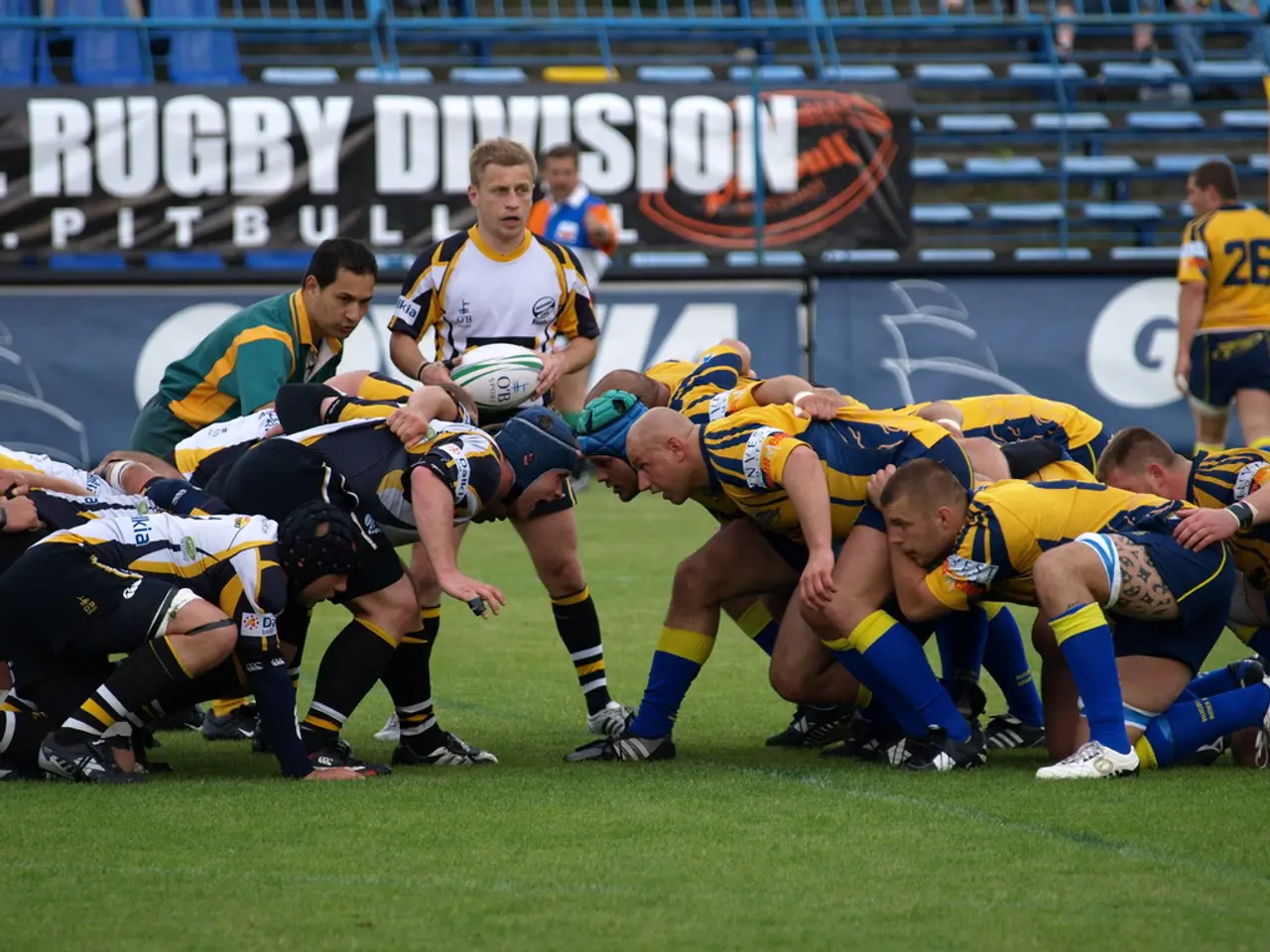Australia's Convergence of Media, Politics, and Rugby League Sports Scene
The world of Australian Rugby League (NRL) is a complex and dynamic one, shaped by various factors that extend beyond the field. Public opinion, media coverage, politics, and technology all play significant roles in shaping the direction of the sport.
One of the most influential factors is the media. Live streaming of games allows those who can't attend to watch the action unfold, but the manner in which these games are presented can have a profound impact. Informed public discourse requires journalists to be fair, accurate, and considerate of the issues at hand. Understanding the connection between media and sports is essential to appreciate these dynamics.
The media landscape in Australia is a blend of public and commercial broadcasters, each with their unique editorial stance and funding levels that can be influenced by government policy. This media environment shapes the tone and priorities of sports coverage, with public broadcasters providing diverse and sometimes critical perspectives, while commercial media may be more sensitive to commercial interests and sponsorship.
Political influence is particularly evident in the realm of gambling sponsorship and advertising. The deep-rooted practice of gambling advertising in NRL games, despite public concerns about gambling harm, is a reflection of political tolerance. This tolerance, or lack thereof, significantly affects NRL coverage, with critical reporting on gambling rarely scrutinizing the sports industries' role in gambling expansion.
Rugby League is more than just a sport in Australia; it is a cherished part of the national identity. Political leaders often use rugby league to connect with voters, tapping into the shared passion for the game. The relationship between rugby league clubs and local communities is essential, with local teams often serving as a source of pride.
The evolution of rugby league sees athletes increasingly acting as advocates for various social and political causes. This development could engage younger audiences in new ways and play a crucial role in encouraging younger generations to participate in rugby league.
As technology advances, rapid changes are occurring in how fans engage with rugby league. Emerging technologies will reshape media coverage and narratives, engaging younger audiences in new ways. Fans may push for the representation of diverse voices, reflecting the rich tapestry of Australian culture.
Governing bodies will need to prioritize national integrity by ensuring fair play and accountability. Rebuilding trust in media can enhance the overall experience of rugby league in Australia. It is crucial for officials to listen to public opinion, especially as social media amplifies voices, and for media outlets to uphold ethical journalism standards.
The implications for the future of sports in Australia are significant, with society continuing to evolve. Encouraging healthy debate can lead to better understanding among fans, players, and politicians alike. The future of rugby league in Australia lies in embracing these changes, adapting to new technologies, and maintaining transparency and accountability.
- The political influence in Australian sports, particularly in the realm of gambling sponsorship and advertising, can shape the tone and priorities of sports coverage, as the deep-rooted practice of gambling advertising in NRL games, despite public concerns about gambling harm, is a reflection of political tolerance.
- Informed public discourse and engagement among younger audiences in Australian sports, such as rugby league, could be fostered by athletes increasingly acting as advocates for social and political causes, with technologies advancing leading to new ways of media coverage and fan engagement.








